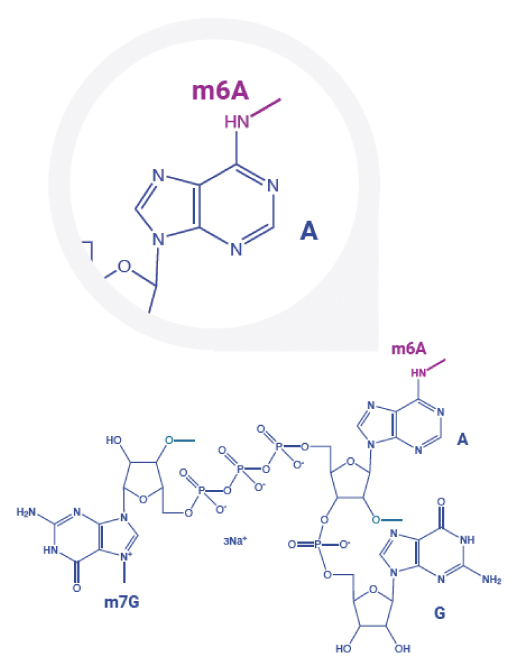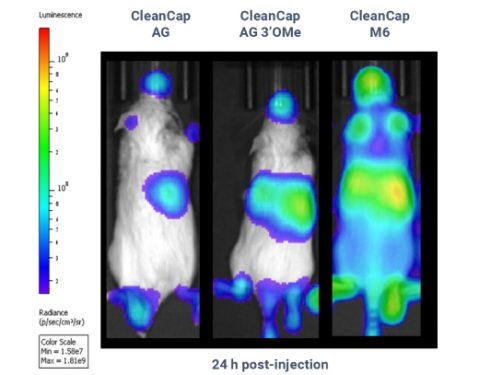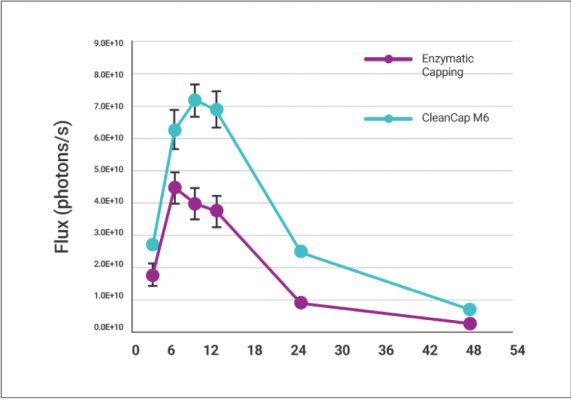Obtain 30%+ higher protein expression
CleanCap® Reagent M6
CleanCap Reagent M6 [CleanCap m6AG (3’ OMe)], is designed for the co-transcriptional capping of mRNA to produce an mRNA with base modified Cap 1.
Using the same 5’ AG initiation sequence as CleanCap AG and CleanCap AG (3’OMe), the CleanCap M6 analog has the addition of a methyl group on position 6 of the first adenosine (m6A) which may further increase protein expression. It has been hypothesized the m6A modification adjacent to the 7-methylguanosine cap can positively influence mRNA stability by preventing enzyme-mediated decapping (Mauer et al. 2017)

CleanCap M6 outperforms
previous analogs
In internal comparison studies, CleanCap M6 promoted higher protein translation (FLuc) than observed with other CleanCap analogs, driving an increase in the potency of your mRNA drug substance.

More potent mRNA than enzymatically capped constructs
When compared to enzymatic capping strategies, the CleanCap M6 analog demonstrated significantly higher protein translation (FLuc), resulting in higher manufacturing yields.

*p<0.001, two-tailed T test.
Error bars are standard error of mean. n=9/group
Access the #1 capping strategy for efficient mRNA translation
Any questions?
If you’d like more information, or have any questions about your mRNA projects and needs, get in contact with us, we’ll be pleased to suggest the best solutions to facilitate your research.
